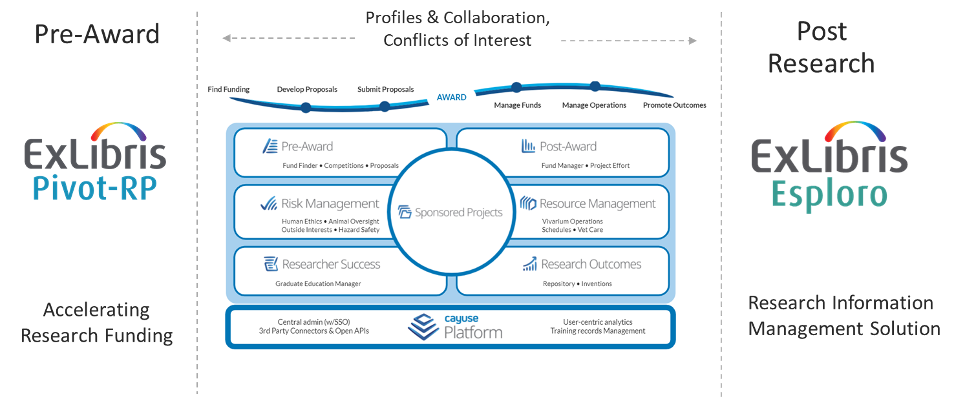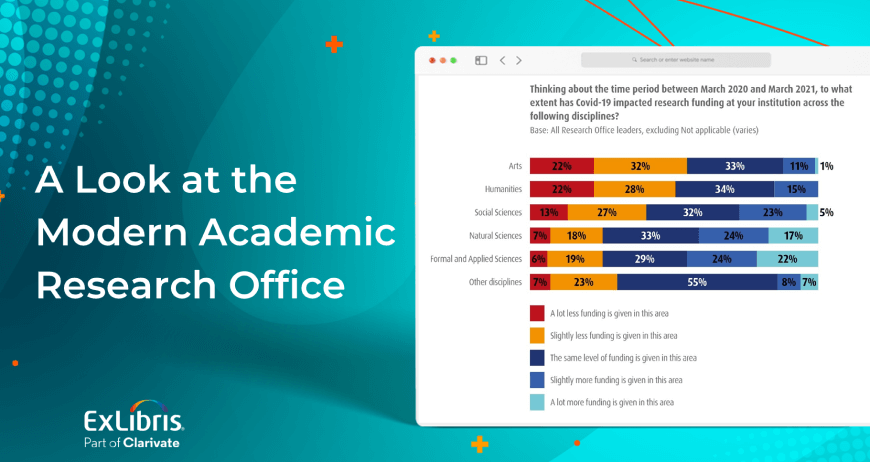This blog post was originally published by Cayuse.
University research offices are tasked with providing a wide array of services and supporting multiple roles and departments within their institutions. Having efficient operations can go a long way toward creating a more competitive research enterprise. This, in turn, helps universities obtain more funding, recruit talented researchers, enhance research collaboration and more.
Like other higher-education business units, research offices must constantly do more with fewer resources—from pre-award activities such as identifying possible funding sources and developing grant proposals, to post-award activities such as managing grant resources, showcasing research findings, and demonstrating the impact of grant-funded projects.
Is there a “secret sauce” for handling all of these responsibilities as efficiently as possible? While no single solution can help with everything, partnerships among vendors can make the research lifecycle easier for everyone involved. This is why we’ve chosen to pair the Ex Libris and Cayuse research solutions, with the goal of improving efficiencies across the research lifecycle.
From pre-award to post-award
The integration of Cayuse with Ex Libris Pivot-RP makes it even faster and easier for researchers and research administrators to act upon relevant funding opportunities and find potential collaborators.
For instance, researchers and project administrators can target available funding sources from Pivot-RP’s extensive database of more than $118 billion in funding opportunities worldwide. Similarly, they can locate potential research partners through Pivot-RP’s extensive researcher profiles database. Plus, with a built in database of previously awarded grants from over 50 international funding sources, users can avoid conflicts of interest and form strategies around which grants to apply for.
Through an API integration, researchers can automatically populate grant proposal forms within the Cayuse Research Administration system with data from Pivot-RP to streamline their workflow and save valuable time.
From post-award to post-research
After a research project has ended and the findings have been published, Ex Libris Esploro can help research offices showcase this work, improve its discoverability, and evaluate its impact.
Integrating Cayuse with Esploro can provide research office administrators with comprehensive analytics, linking together scholarly information, funding, activities and research data from disparate sources. Actionable insights can shed light on funding history and sources, internal and external collaborations, societal impact of research activities, and more.
In addition, Cayuse Inventions can help tech transfer and commercialization offices manage all aspects of the lab-to-market process related to technology transfer, IP management, and research commercialization. Inventions enables collaboration and accessibility for all stakeholders, and provides them an easy way to navigate and visualize their portfolio with key metrics for tracking progress from the lab to licensing.
Facilitating open science
Research operations shouldn’t be constrained by the ability to share information between various technology systems. Open APIs, interoperability and the adoption of FAIR data standards can empower research offices to work more efficiently—and partnerships such as the one between Cayuse and Ex Libris can extend the functionality of research platforms.

In a time of doing more with less, having the right tools has become mission critical. Combined, Ex Libris and Cayuse research solutions provide research office administrators the tools needed to optimize day-to-day workflows, manage the full research lifecycle, and support strategic planning and goals.










